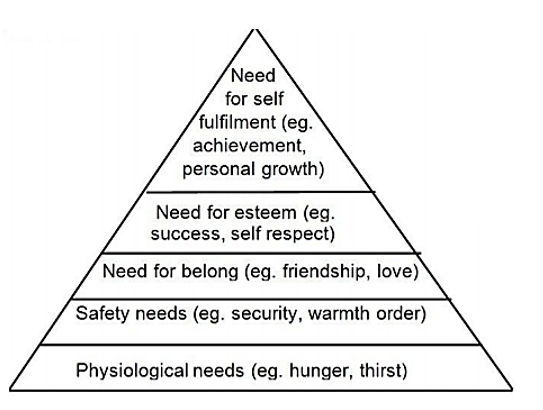Motivation of leaders
In a voluntary movement recruitment and retention of Leaders is of vital importance, but too often Group Lead Volunteers think only in terms of recruitment. In fact, The Scout Association as a whole has few recruitment problems - something like 10,000 new Leaders join annually and approximately the same number leave. Clearly, if only half of the leavers could be retained the number of adult Leaders would double in ten years. It’s all the more important because a proportion of the leavers are new Leaders who have served for a comparatively short time - usually less than six months. Therefore, in examining the question of motivation it’s worthwhile considering not so much how adults may be motivated to become Leaders but rather how they may be motivated to remain so.
A definition of motivation might be 'the hidden force within us which impels us to behave in a particular way'. Since the early 1950s much research has been centred in commerce and industry, on investigations as to why members of workforces behave in particular ways. In industry, for example, it has often been thought that motivation could be achieved by higher wages or improved working conditions. However, it is becoming clear that this is not so - the high wages paid to workers in the conveyor-belt industries in Britain do not prevent unrest, whereas in Sweden, some success has been achieved by making small teams of workers responsible for the total construction of a product. Motivation, in effect, involves fulfilling a set of needs which A.H. Maslow in 1954 classified into a five-fold hierarchy:

As the lower needs are satisfied, higher level motives are released; however a need does not have to be completely satisfied before the next one emerges. Put in simple, Scouting terms, it is difficult for participants on a course to concentrate on the subject in hand if they’re hungry, tired or uncomfortable, just as it is hard to imagine Section Team Leaders being fully effective if they are never certain that the village hall will be available next Friday night.
A further development of this theory and one which has, perhaps, more relevance to Scouting was expounded by Frederick Herzberg in 1966. He divided the factors affecting motivation into two kinds which he called motivators and hygiene factors:
1. Motivators, when present, make a person happy with a resulting improvement in performance. Their effect tends to be long lasting and they arise from the job itself.
2. Hygiene factors, on the other hand, when unsatisfactory, make a person unhappy and result in poor performance and dissatisfaction.
Motivators include such things as achievement, recognition, responsibility and personal growth. Hygiene factors might be working conditions, administration, practical support and inter-personal relationships. Poor hygiene factors can eliminate motivation but good ones cannot, of themselves, motivate. For example, a Cub Scout Leader may gain satisfaction from developing good Pack programmes but motivation will evaporate if the Group Council never has any money to buy the necessary equipment; an Assistant Leader's enthusiasm will disappear if there is no involvement in programme planning and implementation; a new Leader may not get satisfaction from the job because training has not been provided, and so on.
Motivators - feeling of satisfaction from:
- Achievement
- Recognition
- Responsibility
- Personal growth
Hygiene factors - feelings of dissatisfaction from:
- Poor working conditions
- Lack of personal support
- Lack of practical support
- Poor administration
- Poor inter-personal relationships
- Lack of training
It’s fair to say that most Leaders new to Scouting start from a position of high motivation - a desire to help young people achieve their full potential. Such motivation must be maintained by ensuring that their work is recognised, that they are given responsibility and allowed to grow as adults. This motivation must not be diminished by failure to support them, to provide the equipment they need and an atmosphere of good relationships and friendship within which to operate.
Skills of Leadership
Discover the skills